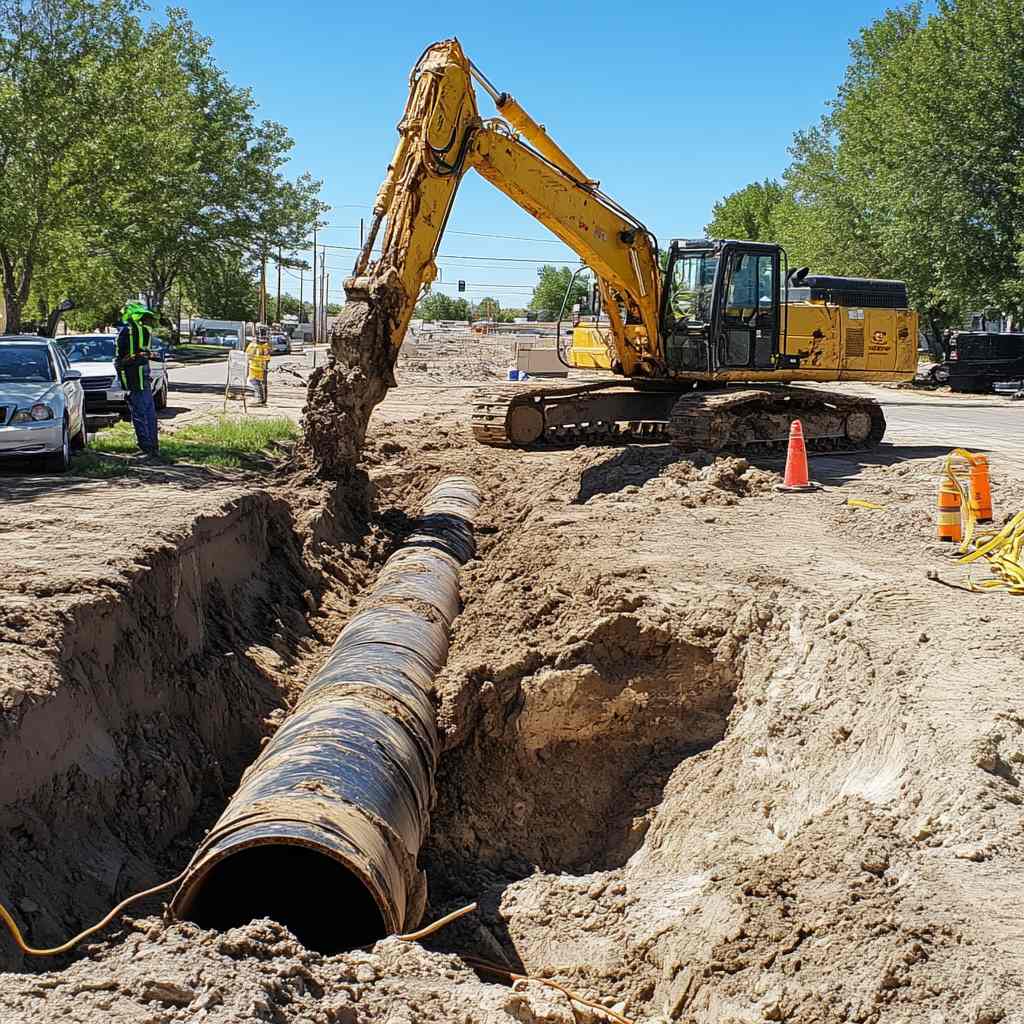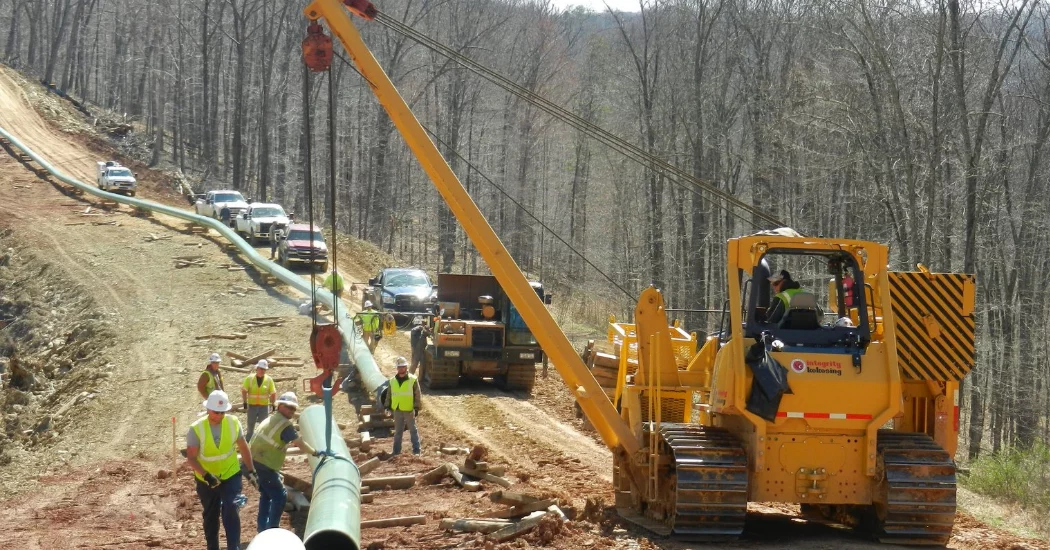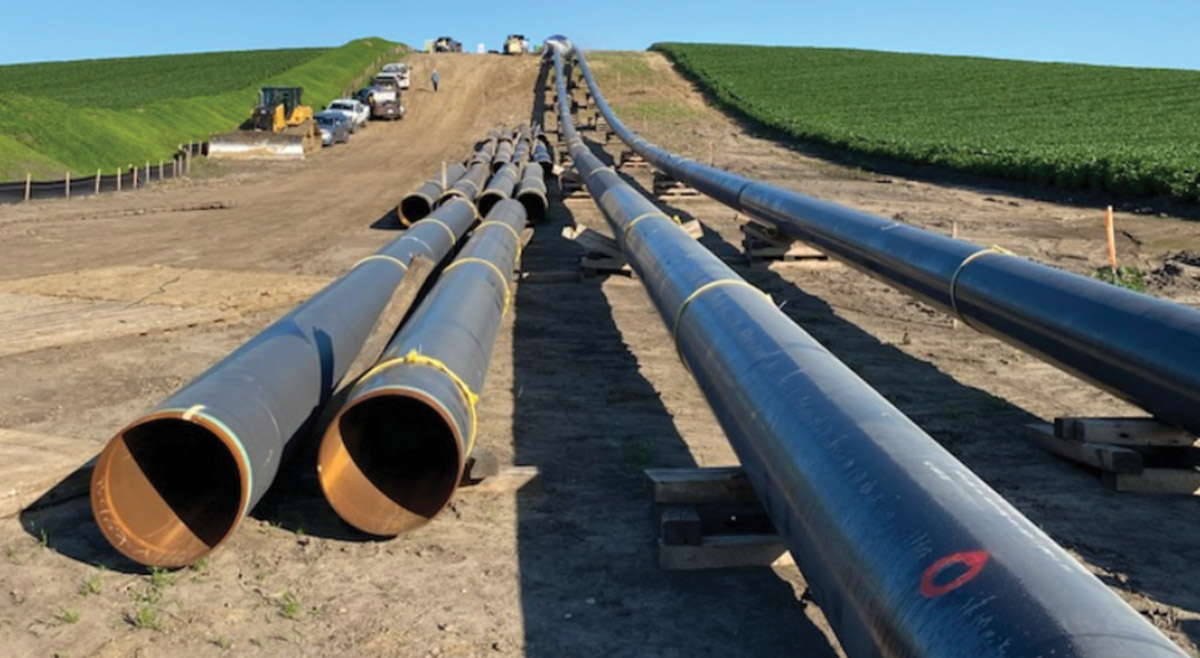Cost Analysis Guide for Pipeline Construction Services Projects
The Necessary Overview to Comprehending Pipeline Construction Solutions and Their Value
Pipeline Construction services are essential to the transportation of essential resources such as water, oil, and gas. These services include careful preparation and implementation, sticking to strict safety and ecological criteria. As the sector adapts to modern-day difficulties, recognizing its ramifications and components becomes progressively essential. What aspects add to the growing importance of these solutions in today's economy? The following sections will discover these important facets.
Introduction of Pipeline Construction Services
Pipeline Construction solutions incorporate a series of activities necessary for the setup and maintenance of pipes used to move various compounds, consisting of oil, gas, and water. These solutions are essential for assuring the risk-free and reliable movement of resources from one location to another. The process generally begins with extensive planning and style, which thinks about regulatory demands, environmental considerations, and logistical difficulties.
As soon as preparation is total, excavation and grading of the land are conducted to prepare the website for Pipeline installation. This is followed by the real laying of the pipes, which includes welding or joining sections with each other to produce a constant flow course. After setup, extensive testing is performed to ensure honesty and safety. Maintenance solutions are likewise supplied to deal with any kind of concerns that might emerge with time. On the whole, Pipeline Construction services play an essential function in sustaining infrastructure for power and water circulation.
Trick Components of Pipeline Construction
A successful Pipeline Construction task counts on several key parts that guarantee the effective and safe installation of the Pipeline system. First, extensive website assessments are essential, as they identify the geographical and ecological variables that may impact Construction. Next off, the choice of appropriate materials, such as pipes and fittings, is important for protecting resilience and compatibility with the moved compounds.
Additionally, progressed Construction methods, consisting of trenchless technology and directional exploration, boost efficiency and minimize environmental impact. Effective job administration is one more crucial component, collaborating labor, equipment, and timelines to meet task goals.
Additionally, communication amongst stakeholders, including designers, service providers, and regional authorities, warranties alignment on project specifications and demands. Finally, thorough quality assurance actions throughout the Construction procedure guarantee compliance with market criteria and make the most of the Pipeline's operational lifespan. Jointly, these elements form the backbone of an effective Pipeline Construction job.
Security Criteria and Regulations in Pipeline Construction

Regulatory bodies, such as the Occupational Safety and Health Administration (OSHA) and the Pipeline and Hazardous Materials Safety And Security Management (PHMSA), established forth specific needs that regulate Construction practices. These consist of protocols for tools use, worker training, and emergency situation reaction treatments. By implementing these standards, Construction business not only shield their workers however additionally protected public trust. Inevitably, rigorous security measures add to the long-lasting success of Pipeline projects, ensuring they meet both operational and environmental assumptions.
Environmental Factors To Consider in Pipeline Projects

Ecological considerations are important to the preparation and implementation of Pipeline projects. These tasks should evaluate prospective impacts on environments, water resources, and regional wild animals. Performing detailed ecological influence analyses (EIAs) is vital, permitting stakeholders to recognize and reduce threats prior to Construction starts.
Protecting sensitive locations, such as marshes and environments, often requires carrying out details style attributes or alternate transmitting to lessen disturbance. Furthermore, Pipeline operators are entrusted with establishing techniques for protecting against spills and leaks, which can have disastrous impacts on the setting.
Involvement with regional communities is important, as public issues can this hyperlink bring about job modifications that enhance environmental management. Compliance with guidelines set by ecological agencies ensures that jobs fulfill sustainability requirements, cultivating an equilibrium between infrastructure needs and eco-friendly preservation. Inevitably, dealing with environmental factors to consider not just safeguards nature however also advertises area trust fund and task viability.
The Role of Innovation in Pipeline Construction
Technology plays a necessary duty in contemporary Pipeline Construction, improving effectiveness and precision. Advanced checking strategies permit for exact preparation and implementation, decreasing ecological influence and job hold-ups. Additionally, the integration of automation and robotics enhances procedures, minimizing labor costs and boosting safety and security on Construction sites.
Advanced Checking Methods
Advanced evaluating methods play a crucial function in the successful implementation of Pipeline Construction projects. These techniques take advantage of advanced modern technology to assure precise mapping and evaluation of the surface where pipelines will be set up. Strategies such as Geographic Info Solution (GIS), LiDAR (Light Detection and Ranging), and 3D modeling allow engineers to assess the landscape and picture, identifying environmental issues and prospective barriers. By using these advanced devices, groups can enhance precision in positioning and alignment, considerably reducing the threat of mistakes throughout Construction. Furthermore, real-time data collection permits instant modifications and educated decision-making throughout the project lifecycle. Inevitably, these checking advancements add to boosted effectiveness, safety and security, and sustainability in Pipeline Construction efforts.
Automation and Robotics

Economic Influence of Pipeline Framework
Pipeline facilities plays a necessary duty in helping with and forming local economic situations profession. By supplying a trustworthy methods of transferring oil, gas, and various other products, pipes lower transportation prices and enhance supply chain efficiency. This facilities attracts investment, promotes task creation, and promotes economic development in bordering locations.
Additionally, the Construction and maintenance of pipelines contribute significantly to regional economic climates, developing many job opportunity in different sectors, from design to labor. The increase of work commonly causes raised costs in regional businesses, even more strengthening economic activity.
In addition, pipes enhance energy protection by making certain a stable supply of resources, which is critical for industrial operations and household needs. As regions end up being adjoined with Pipeline networks, they gain accessibility to broader markets, boosting competitiveness and financial resilience. The economic effect of Pipeline facilities is multifaceted, influencing both immediate neighborhood economies and wider regional development.
Future Trends in Pipeline Construction Services
The future of Pipeline Construction solutions is advancing in response to technical advancements, governing adjustments, and growing ecological considerations. Developments such as drones and robotics are improving evaluation and maintenance processes, enhancing safety and security and performance. Automation is positioned to reduce labor prices and boost precision in Construction operations. In addition, the raising focus on sustainability is triggering firms to embrace eco-friendly products and practices, straightening with worldwide initiatives to decrease carbon impacts.
Governing frameworks are likewise adjusting to resolve environmental impacts, pressing for greater openness and responsibility in Pipeline projects. In addition, the combination of clever innovations, consisting of real-time monitoring systems, is anticipated to improve the integrity and performance of Pipeline networks. As power demands shift toward eco-friendly sources, Pipeline Construction solutions will likely see a rise in jobs connected to biofuels and hydrogen transport. Generally, these fads show a transformative period for the Pipeline Construction market, focused on development and sustainability.
Frequently Asked Concerns
What Sorts of Pipelines Are Frequently Created?
Various sorts of pipes are commonly constructed, including oil, sewage, gas, and water pipelines - Pipeline Construction Services. Each serves unique purposes, promoting the transport of vital sources throughout areas while adhering to safety and environmental policies
How much time Does a Typical Pipeline Project Take?
The duration of a typical Pipeline project varies significantly, often ranging from several months to a couple of years. Variables affecting this timeline consist of task complexity, governing approvals, and environmental considerations that have to be addressed.
That Manages Pipeline Construction Business?
Pipeline Construction companies are regulated by different federal, state, and local firms, including the Pipeline and Hazardous Products Security Administration (PHMSA) and state utility payments, ensuring conformity with security and environmental requirements throughout the Construction process.
What Prevail Products Used in Pipeline Construction?
Usual products utilized in Pipeline Construction include pvc, polyethylene, and steel. Each product provides distinctive advantages such as resistance, longevity, and versatility to deterioration, making them ideal for different applications in moving fluids and gases.

Exactly How Are Pipeline Construction Costs Approximated?
Pipeline Construction expenses are approximated by examining elements such as product expenditures, labor rates, task complexity, ecological considerations, and regulatory needs (Pipeline Construction Services). Precise price estimate guarantees reliable budgeting and task planning throughout the Construction process
Pipeline Construction image source services encompass a variety of tasks necessary for the installment and upkeep of pipelines used to transport different materials, including water, oil, and gas. A successful Pipeline Construction project depends on several essential parts that guarantee the reliable and safe setup of the Pipeline system. Advanced evaluating strategies play an important function in the effective execution of Pipeline Construction projects. Various kinds of pipelines are frequently built, including oil, gas, sewer, and water pipes. Pipeline Construction costs are estimated by analyzing aspects such as material expenditures, labor prices, project intricacy, ecological considerations, and regulatory needs.